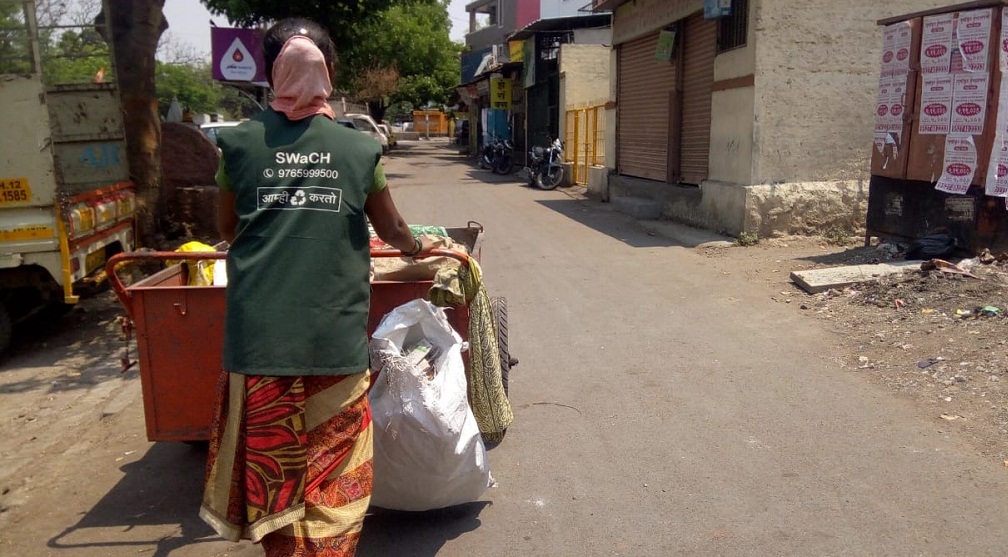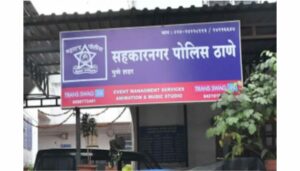Pune: SWaCH clarifies on labour rights, fee levied etc in waste collection model

Pune, August 20, 2020: In the run upto renewal of the SWaCH’s agreement with the Pune Municipal Corporation (PMC), many questions and accusations are being raised by the corporators. Now SWaCH has issued clarification on various issues raised.
As per SWaCH, “The current slate of arguments and accusations are arising in the backdrop of the PMC’s 5-year contract with SWaCH coming up for renewal at the end of the year. From the commencement of the system in 2008 to its renewal in 2015, at the beginning of each cycle, such challenges are issued to because of no single entity – private, public, administrative or political controls the flow of user-fees from the citizens to the waste-pickers. Challenge is mounted to a system that directly benefits workers, provides the most efficient system to citizens, saves the city over 100 crores each year, recycles 70,000 tonnes of waste and is incorruptible in its design, and has been appreciated/awarded/lauded by administrators and leaders around the country, including Parliamentary Standing Committees and the Prime Minister of India. Politicisation and breaking up of the user fee-based waste collection system will leave Pune with a situation where citizens will pay much more for a lesser quality service, delivered through private profit-making contractors who are unaccountable to the citizens and have no motivation for workers’ rights or environmental conservation.”
PMC-SWaCH partnership
In 2005, Kagad Kach Patra Kashtakari Panchayat in collaboration with SNDT’s Department of Adult Education implemented a pilot program to upskill 1,500 waste-pickers as service-providers for door-to-door collection (DTDC) of household waste. This pilot not only improved livelihoods and work conditions, it also bridged the gap between households and the municipal waste-collection service. SWaCH Pune Seva Sahakari Sanstha was formed in 2007 from this very program. In 2008, the PMC made a five-year agreement with SWaCH to decentralize DTDC services, wherein cooperative members collect segregated waste from >2000 households. The non-recyclable garbage is further segregated for sale, while the wet/organic and non-recyclable waste is dropped off at PMC ‘feeder points,’ from where it is collected by the municipal garbage trucks and sent to the landfill. The agreement was renewed in 2015 and it is again due for renewal this year.
Argument: Taxpaying citizen is being exploited, overcharged, paying property tax as well as a user-fee
Fact: Any differently modelled door-step waste collection system will cost the tax-payer between 2 and 8 times more (Rs 150 – Rs 500) for a Gate collection service. Citizens will have to pay additionally for doorstep collection. This is ratified by calculations made by the PMC.
Citizens are not charged doubly for the same service. The cleanliness tax is utilized for secondary transport of waste, processing, disposal, street sweeping etc. In 2018-19 the cleanliness tax covered 40% of the SWM budget (179 Cr recovery out of 462 Cr budget). Meanwhile, the Swach collection system saved the city 92 crores in 2018-19.
Argument: User Fee is being charged without legal basis
Fact: Governments of Maharashtra and Government of India have issued orders at various points of time to promote user-fee based model to ensure transparency and direct accountability. In 2002, the GoM had asked local bodies to start user-fee based models integrating informal waste-pickers. Latest Regulations are the 2018 GoM directive making it mandatory for Municipal Corporations to charge user fees, which may be taken by the local body or any person appointed in this regard.
Argument: 100 Crores in user fees are collected by the cooperative and no receipt is issued.
Fact: Citizens pay user fees to waste-pickers directly. The total user fees collected is estimated at 60 crores annually, split between 3500 waste-pickers across 12 months averaging to 14,000 per waste-picker. The cooperative does not retain any user fee of waste-pickers, nor use it to operate the organisation. Whenever money is received by waste-pickers, neither PMC nor Swach issue receipts. Yet, coupons confirming the amount are issued by waste-pickers to citizens where required, especially when commencing the service. All elected representatives and PMC field staff are aware of the user fee rates, which are widely publicized and shared through patraks to citizens.
Argument: Charging direct user fees is not transparent and should be collected by the PMC through taxation and then distributed to workers
Fact: Direct user fees are the norm for transparency in any transaction as the service recipient pays the service provider directly. There is no contracting agency, local body, contractors involved in the mechanism. Citizens pay for the service they get. In contractor-based models, citizens do not know how their tax is being used, and workers do not get their complete dues and stand to be exploited by contractors.
Argument: Waste pickers are exploited in the SWaCH model and do not earn a minimum wage
Fact: Waste pickers earn at least a minimum wage (on an hourly basis) in the SWaCH model. They have agency, control over their income, flexibility to work according to their requirements and abilities. Contractor based systems mean delayed and lower earnings for waste pickers. This is ratified by SWaCH waste pickers’ continued endorsement of the model over a decade.
Argument: Swach waste-pickers do not service slums
Fact: ~70% of slums in Pune are covered by Swach waste-pickers, just as they service 70% of non-slum areas of Pune. Over 500 containers have been removed from around slums over the last 4 years through the expansion of waste-pickers service. Further expansion is barred by localized political or administrative opposition to removal of containers, PMC vehicles or starting direct user-fee based services.
Argument: SWaCH has a monopoly in this work- why can other agencies not be allowed to operate
Fact: SWaCH is not as much an institution as it is a model that benefits the waste picker, the citizen and the environment. It is a Pro-poor public-private partnership built by the PMC and the citizens of Pune for providing an efficient and transparent waste collection service.
“Any alternate model offering better terms for all three or tweaking of the model will be welcome. But a model that compromises one at the cost of the other, is likely to collapse or cost some stakeholder”, SWaCH said.





